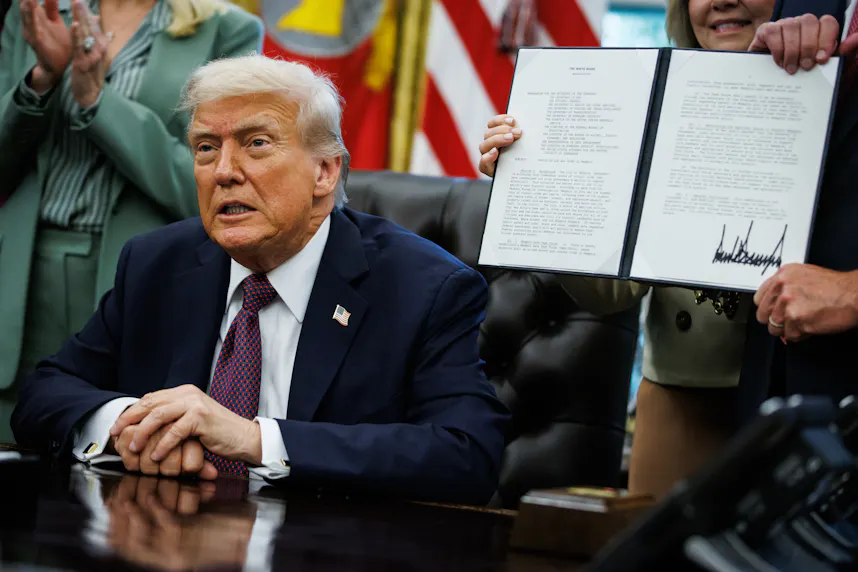ABV Warns Trump's One Big Beautiful Bill Act Tax Change Could Threaten Regulated Sports Betting

Last Updated: October 7, 2025 1:51 PM EDT • 3 minute read X Social Google News Link

American Bettor's Voice (ABV), a platform that educates and shapes the betting industry, has spoken out regarding the One Big Beautiful Bill Act (OBBBA) and language that could have a detrimental impact on professional gamblers and the broader US gaming industry.
ABV board member Adam Robinson outlined those effects in The OBBB Gambling Tax Provision: An Existential Threat to Regulated Sports Betting, where he explains how the policy places a risk for bettors and operators financially.
The Senate's OBBBA changes how deductions for gambling losses are handled, allowing only 90% of total wagering losses to be deducted in the tax year. This structure could result in bettors being taxed on money they didn't win at the best sports betting sites, creating what ABV describes as "phantom income."
The organization, helmed by Richard Schuetz as CEO and supported by professional bettors such as Gadoon "Spanky" Kyrollos and Billy Walters, warns that the measure could drive players away from regulated markets and the best sports betting apps.
According to Robinson, the proposed change could result in a $1.5 billion annual decline in gross gaming revenue, an $18 billion loss in total betting handle, and a $420 million reduction in state tax revenues. ABV projects New York could lose $129 million annually in taxes, and Illinois about $41 million.
Operators like FanDuel and DraftKings could each face billions in lost handle, while PENN's $2.1 billion ESPN BET partnership might be jeopardized by user attrition.
Robinson emphasized that professional gamblers would face "economic devastation" due to the revised deduction limit. The OBBBA also overturns provisions from the Revenue Act of 1954, which allowed full loss deductions against winnings, aiming to generate $1.1 billion in additional federal revenue over eight years.
ABV contends the shift would turn gambling from leisure expenditure to what Robinson called "a tax planning nightmare," driving off both serious and recreational players and jeopardizing the industry's long-term viability.
Phil Galfond calls OBBBA tax provision "Devastating"
Phil Galfond, a professional poker player, is one of the loudest voices against the OBBBA gambling loss provision, cautioning that it may hurt professionals badly.
In a video posted on X a few months ago, Galfond illustrated the issue with a practical example, showing how a gambler who earns $5.2 million in winnings and incurs $5 million in losses would only be allowed to deduct $4.5 million. The remaining $700,000, though not an actual profit, would be taxed as income.
For a player whose real profit is $200,000, the tax would still apply to the $700,000 figure, effectively erasing legitimate gains and creating an artificial tax burden. Galfond described the policy as potentially marking "the end of many pro gamblers' careers," citing how many operate on tight margins that leave little room for such discrepancies.
Lawmakers, including Rep. Dina Titus of Nevada, have sought to amend the provision, noting its potential impact on Las Vegas and the broader US gaming economy. However, those efforts have so far failed to gain traction.

Ziv Chen X social





